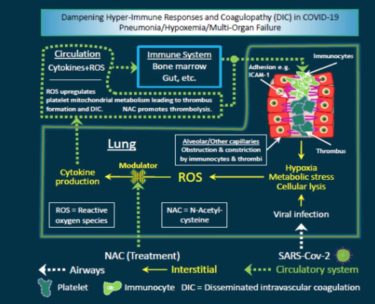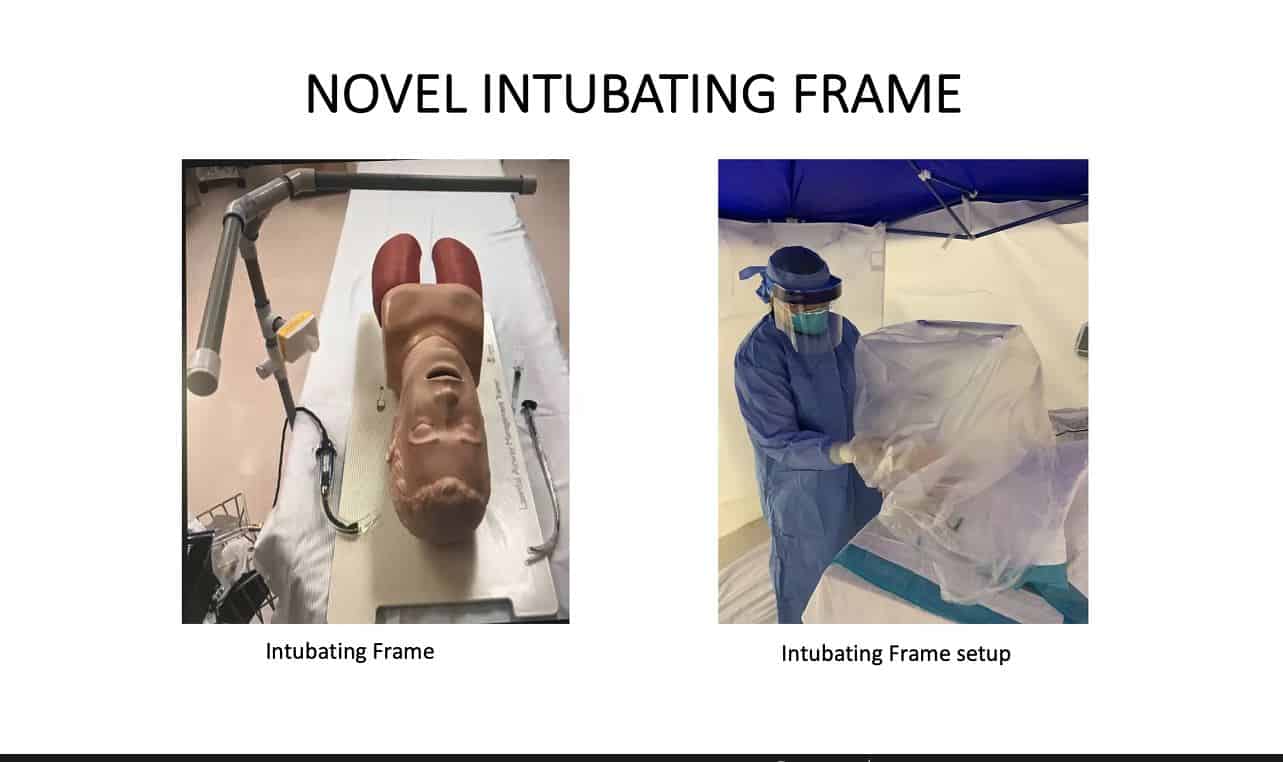Showcase Highlights UAMS COVID-19 Research
| UAMS researchers are confronting COVID-19 with a range of potentially significant studies, including antibody and genomic testing, the use of existing medications, and innovations that more effectively protect health care workers from infection.
This work and much more was highlighted in 21 presentations at the June 18 UAMS Showcase of Medical Discoveries – A Focus on COVID-19 Research.
The Zoom-based event, hosted by Shuk-Mei Ho, Ph.D., UAMS vice chancellor for Research and Innovation, drew 166 attendees from eight state and federal institutions.
“Our researchers, along with their collaborators here and across the globe, are demonstrating their invaluable intellect, innovation and dedication to finding science-based solutions to COVID-19,” Ho said. “The showcase is just the tip of the iceberg; there are dozens more potentially high-impact COVID-19 studies that are either active or in the pipeline at UAMS.”
The collaborating institutions represented at the Showcase included Arkansas Children’s Hospital, Arkansas Research Alliance, Central Arkansas Veterans Healthcare System, U.S. Food and Drug Administration, National Center for Toxicological Research, University of Arkansas at Fayetteville, and University of Arkansas at Pine Bluff.
Attendees learned that UAMS researchers have developed and implemented a high-accuracy antibody test. Since the showcase, UAMS leaders publicly announced that the antibody test is being used in a $3.3 million statewide seroprevalence study involving 7,500 Arkansans.
Attendees also learned that:
- A new, portable system for blocking aerosol spray by COVID-19 patients during intubation was developed by UAMS Medical Center/Emergency Department physicians Faiza A.

This slide was used in discussing the potential of an antioxidant to help severely ill COVID-19 patients.
Khan, M.D, Zachary B. Lewis, M.D., Sina B. Ekici, M.D., and Nadir Sharawi, M.D.
- An FDA-approved antioxidant may have potential to help critically ill COVID-19 patients. The research is being conducted by Robert J. Griffin, Ph.D., Nukhet Aykin-Burns, Ph.D., Michael Borrelli, Ph.D., and Peter M Corry, Ph.D.
- A UAMS team from the College of Medicine Department of Biomedical Informatics and College of Public Health is testing wastewater at the city of Conway to estimate the level of community infection in comparison to individual testing. The team includes David Ussery, Ph.D., Catherine Shoults, Tom Powell, M.D., Jing Jin, Ph.D., Mohammed Orloff, Ph.D., and David Hirschberg, Ph.D.
In his presentation about the antibody test, UAMS’ Karl Boehme, Ph.D., said that based on preliminary results, as many as 10% of Arkansans may already have antibodies for SARS-CoV-2, the scientific name of the new strain of coronavirus.
Unlike diagnostic tests, COVID-19 antibody testing looks into the history of the immune system. A positive antibody test means the person was exposed to the virus and developed antibodies against it.
The test’s development was a collaborative effort by Josh Kennedy, M.D., associate professor in the UAMS College of Medicine, Department of Pediatrics; and Craig Forrest, Ph.D., and Boehme, both associate professors in the Department of Microbiology and Immunology in the College of Medicine. They created the test using components provided by Florian Krammer, Ph.D., a microbiology colleague at the Icahn School of Medicine at Mount Sinai in New York.
The high-accuracy UAMS antibody test stands out from many others on the market that have proved to be inaccurate.
“Our specificity is 100% and our sensitivity is 100% to SARS-CoV-2, so we’re feeling pretty good about the quality of our assay,” Boehme said of the latest validation assessment of the antibody test.
The researchers hope the information that comes from the UAMS-led statewide testing will help guide the decision-making of policymakers as they work to keep Arkansans safe.
Following the two-hour showcase, researchers remained on the call to talk to their colleagues and answer questions.
View summaries of all of the presentations.
Titles of the research presentations included:
- Detection of Viruses in Body Fluids in Real-Time Using SpecID
- Flow Cytometry Analysis of Anti-SARS-CoV-2 Antibodies in Human Plasma
- Novel Intubating Frame to Reduce Contamination in COVID-19 Patients
- Sprayable Anti-viral Cellulose Materials for Surface Coatings
- Evaluating COVID-19 Related Central Nervous System Damage
- Can Oxygen Carrier Molecules Offer Neuroprotection in Oxygen-deficient Conditions Such as During Severe COVID-19-induced Pneumonia?
- SARS-CoV-2 Helicase, a Target for Development of Anti-COVID Therapeutics
- An ex vivo Human Lung Platform for Studying COVID-19 Pathogenesis and Antiviral Drug Discovery
- Application of Human in vitro Airway Tissue Models for Coronavirus Antiviral Drug Screening and Drug Repositioning
- SARS-CoV-2 Cross-Protection Study Using Surrogate Coronavirus and Recombinant Proteins
- A Radiation Mitigator as a Potential Treatment for COVID-19
- Artificial Intelligence (AI)-powered Drug Repositioning for Treating COVID-19
- Evaluating Genotoxic Potential of Antiviral Ribonucleoside Analog β-D-N4-hydroxycytidine in Rat Pig-a and MN Assays
- Recovering High Quality SARS-COV2 Genome Sequence and Microbiome from Clinical Samples for Genomic Epidemiology
- Development of a High-Density Protein Array for COVID-19 Antibody Binding Assays
- Detection of Covid-19 from a Wastewater Treatment Plant in Conway, Arkansas
- Consumer Health Information on COVID-19 Not Ideally Readable or Actionable
- Exploratory Analysis of Social Network Messages to Characterize Community Understanding and Behavior During the Ongoing COVID-19 Pandemic
- Development of a Serologic Test for SARS-CoV2
- DLAM Technical Services Core
- CAVHS and VA Research Related to COVID-19


